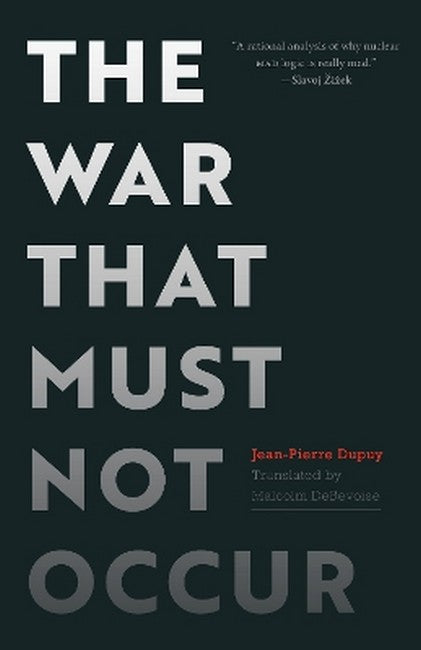Jean-Pierre Dupuy is Professor Emeritus of Social and Political Philosophy at the Ecole Polytechnique in Paris and Professor in the Program in Science, Technology, and Society at Stanford University. He is a member of the French Academy of Technology and formerly Chair of the Ethics Committee of the French High Authority on Nuclear Safety and Security. His many books, translated into thirteen languages, include How to Think About Catastrophe: Toward a Theory of Enlightened Doomsaying (2022) and The Mark of the Sacred (Stanford, 2013). Malcolm DeBevoise has translated some fifty works from French and Italian in every branch of scholarship. He is a three-time winner of the French-American Foundation translation prize for nonfiction.
Request Academic Copy
Please copy the ISBN for submitting review copy form
Description
Introduction 1. One Minute from Apocalypse and Why (Almost) No One Gives a Damn 2. MAD: The Birth of a Structure 3. The Pure Theory of MAD 4. Metaphysical MAD Appendix
"A stimulating read, essential for understanding the remaining options afforded to our civilization, now that we live with the irreversibility of the nuclear bomb." -Diane Delaurens, Nonfiction "We all live under the shadow of a forthcoming catastrophe: pandemic, ecological disaster, nuclear war. Our reactions to such threats are often irrational, and Dupuy provides a superbly readable rational analysis of all these irrationalities: why the logic of nuclear MAD (mutually assured destruction) is really mad, why nuclear threats are never just rhetoric but can trigger an actual catastrophe, why sometimes to be taken seriously one has to act as if one is mad, why the only rational strategy is to accept that things can at any moment go wrong. Dupuy is our best theorist of catastrophes and his new book is a book for all of us-in a well-organized state, it would be massively printed and freely distributed to all families. So it is vulgar and trivial to say that this is an excellent book-it is rather a book that we all need like ordinary daily bread." -Slavoj Zizek, author of Surplus-Enjoyment "This is a provocative exploration of the paradoxes of nuclear deterrence. If we are to postpone nuclear catastrophe indefinitely, Dupuy argues, we must understand that nuclear war is not merely possible but bound to occur." -David Holloway, author of Stalin and the Bomb "Dupuy provides an extremely important service by bringing much-needed attention to the existential risk that society largely ignored prior to the war in Ukraine and, even now, does not take seriously enough. Highly recommended." -Martin E. Hellman, winner of the Turing Award "Dupuy, one of the most incisive thinkers of our times, allows us to rethink history while it is in the making. This book is mandatory reading for anyone who seeks to understand our present." -Frank Ruda, coauthor of Reading Hegel "Most of us navigate our private joys and woes without thinking about collective nuclear annihilation. This is not because the threat has vanished. It is because it is unthinkable. In this compelling work of rational doomsaying, Dupuy models how to think the unthinkable. The result is a challenging and urgent book." -Alison McQueen, author of Political Realism in Apocalyptic Times "This brilliant analysis is as frightening as it is illuminating. Dupuy assesses policy, words of candidates and politicians, and real-time war events (including Russia and Ukraine), giving nuance to them with theological and moral arguments....Essential." -R. Ward, CHOICE "Dupuy is perhaps the most important thinker of catastrophe today."-Timothy Bryar, Journal for Peace and Nuclear Disarmament "Dupuy has done everyone a great service with this book in offering a template for 'thinking the unthinkable.'"-Reginald McGinnis, Colloquium on Violence & Religion

